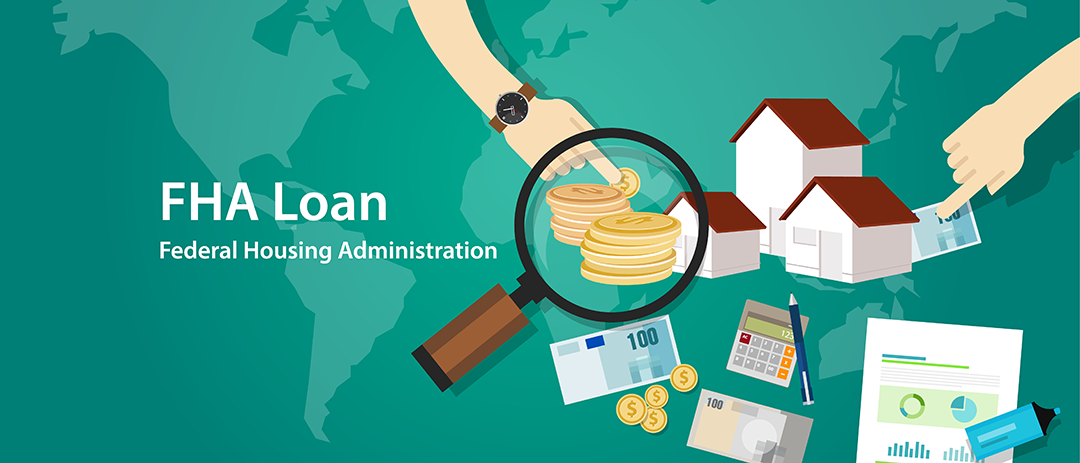Join us and step into the extraordinary world of home ownership by first understanding the pros and cons of an FHA loan. Amidst the vast array of financing options, FHA loans substantially corner the market. Frequently, borrowers assume that FHA loans are only for first-time home buyers. Consistently, FHA loans are often the perfect home loan for beginners. However, FHA mortgages are available to all eligible borrowers. Let’s break down the fundamental aspects of mortgages, discover which loan makes sense, and guide you to loan officers who can partner with you to achieve your dream of home ownership.
What is an FHA loan?
Since the government insures FHA loans, each FHA loan sits within a larger pool of insured loans, which shares the risk of insuring less qualified borrowers. Suitably aligned, the U.S. Department of Housing and Urban Development, a Federal Housing Administration (FHA) division, provides mortgage insurance on loans made by FHA-approved borrowers. This lending powerhouse insures mortgages on single-family homes, multifamily properties, residential care facilities, and hospitals throughout the United States and its territories. Framed by history, diverse lending options and abundant loan availability keep the mortgage market fair.
Confidence grows when buyers make informed decisions. Therefore, researching beyond the pros and cons of an FHA loan is crucial before loan selection. Notably, FHA loans are easier to acquire than conventional mortgages because government agencies like Fannie Mae and Freddie Mac insure the loan. With the government-backed agency insuring the property in the case of a foreclosure, they require less money upfront from the homeowner. Let’s face it, homeownership is the pulse of the American dream, and these financing options are popular solutions for first-time homeownership.
Beyond the pros and cons of an FHA loan: What’s their purpose?
Historically, in 1934 congress created the FHA due to 2 million unemployed construction workers and a nationwide housing crisis. At this point in history, only one in ten Americans owned a home. Our economy was at an all-time low, and we needed a real estate solution. The sole purpose of the FHA was to collect mortgage insurance premiums from borrowers via lenders. Once these premiums were collected, mortgage loan terms we set to 50% of the property’s market value, and repayment schedules were originally set over 3-5 years. Brilliantly, in 1965 the FHA joined forces with the Department of Housing and Urban Development (HUD).
Solving the housing crisis, Congress allowed struggling American citizens to begin making mortgage payments, breaking the cycle previously caused by extreme poverty and economic hardship. With the inflated costs of homes in today’s housing market, one could only dream of paying outright for a home. This is precisely where the mortgage and lending market plays a crucial role in our economy. In the current mortgage landscape, weighing the pros and cons of an FHA loan over a conventional mortgage is an essential step in the right direction.
Pros and Cons of an FHA Loan: The Top 5 Pros
1. Have options for low down payments
With decent credit (580 or higher), borrowers can qualify for a loan with as little as 3.5% down. Higher credit scores and lower debt-to-income ratios (DTI) reduce down payment requirements. Therefore, FHA loans often provide the best solution for buyers with a minimum down payment.
2. Allow for lower credit scores.
Most conventional loans have a credit score requirement of 620 or higher. Some mortgage lenders will qualify a borrower with a credit score below 500. This ill-advised practice will likely have a significantly elevated interest rate. Although FHA loans provide opportunities for borrowers with minimum credit scores. Improving credit scores and financial situations before seeking funding is ideal for best-practice borrowers.
3. Approve higher debt-to-income ratios (DTI)
Debt to income is one of the most critical aspects of the home purchase timeline. Simply put, this is how much money borrowers make vs. how much debt they owe. Lenders consider the cumulative monthly payments borrowers make. Income requirements are finite. In light of this, avoid buying a new vehicle or using any credit before purchasing a home. The better the borrower’s DTI ratio, the more buying power they have.
4. Better interest rates
As a general rule, FHA loans offer better interest rates than other types of mortgages. Although the general market and housing economy set the interest rate, government-backed loans provide more buyer-friendly rates than many other loan options.
5. No maximum income limits
Often, high-earning borrowers take advantage of FHA loans and benefit from their flexible down payment opportunity. In contrast, loans like USDA cap how much a borrower can earn. By utilizing FHA loans, borrowers gain home equity and keep more down payment funds in their pockets. If a higher-earning buyer with a premium credit score needs a new primary residence, the pros and cons of a low-interest FHA loan often outweigh those of conventional loans.
Pros and Cons of an FHA Loan: The Top 5 Cons
1. FHA Mortgage Protection Insurance (MIP) requirement.
All FHA loans require MIP. In addition to a down payment of 10 percent of the loan amount, borrowers pay FHA mortgage insurance for the first 11 years of the loan term. If the down payment is less than 10 percent, borrowers pay MIP for the life of the loan. Understandably, MIP often needs clarification from private mortgage insurance (PMI). PMI relates to insuring conventional loans.
2. Strict property standards
An approved FHA home must be safe, sound, and secure, so obviously, this rules out buying a fixer-upper. Although this sounds simple, many homes are just not up to code. Therefore, the importance of a quality home inspection is paramount. Significant inspections check for water damage, plumbing, electrical, heating, health hazards, and roof/crawl spaces and assure property standards.
3. FHA loan limit
As a rule, the FHA sets floor and ceiling limits for loan amounts. However, these limitations vary from time to time, so it is important to stay informed. Here is a link to search by state, county, or Metropolitan Statistical Area.
4. Upfront mortgage insurance premium (UFMIP)
UFMIP is a one-time premium of 1.75% for FHA loans. This fee can either roll into the mortgage payments, or buyers can make it in one upfront payment. The purpose of this premium is additional coverage in the unfortunate event of foreclosure, and insurance plays a significant role when weighing the pros and cons of an FHA loan.
5. Must be a primary residence
Generally speaking, an FHA mortgaged dwelling must be your primary residence. Currently, buyers can’t use an FHA property as a vacation rental, an investment property, or even as a second home. In contrast, one exception for 4-unit dwellings. In this case, the borrower must live in one unit as a primary residence.
Now that you know the pros and cons of an FHA loan, let’s connect.
Your home plays a major role in financial security. So, regarding your mortgage loan, you want to be sure you’re making responsible decisions. Undoubtedly, the loan process invokes insecurity in many people. In particular, navigating through a sea of paperwork and financial jargon can be unsettling without honest guidance. In fact, a lack of clarity can lead you down the wrong path and compromise your financial future.
You deserve to work with a lender who brings clarity and has your best interest at heart. Whether you are looking to purchase a home, help with refinancing, lower interest rates, or specifically ensure that you have made the best decision for the life of your loan, Mortgage Insiders can help you after helping thousands of families reach their goals to create stronger financial futures.
The steps are simple:
1. Schedule a Call: An experienced loan officer can discuss your needs and guide you through the possibilities.
2. Get Approved: We’ll help you through the application process and facilitate the steps for approval.
3. Exhale: Put your feet up and feel secure knowing you made the best decisions about your home loan.





